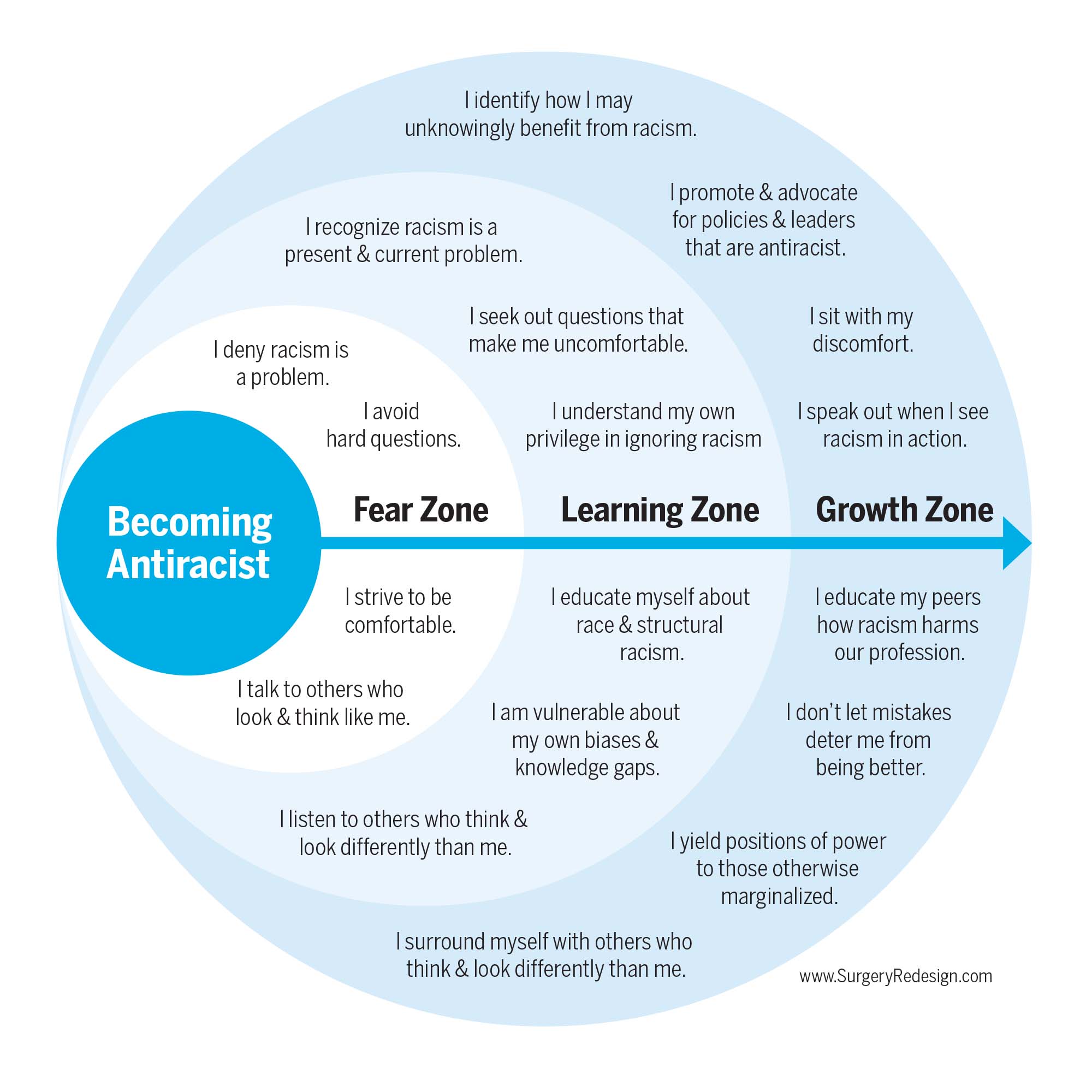
For those of us dedicated to improving healthcare, it can be painful to accept that our institutions have histories and structures that have harmed people of color. Even when we admit that institutional racism exists and bring our best intentions forward, it can be difficult to respectfully talk about racism with others. I have increasingly learned from my residents and colleagues that white people must carry the burden of initiating conversations about race and racism. As such, I want to share some insights to help others break the ice.
Mass General Brigham developed the Stepping Stones Initiative, an educational series to help our community deepen its awareness of how racism operates within our society and our organization. I have found the program inspiring and helpful for staying in conversations about racism, especially when it’s hard.
Here’s what I’ve learned:
-
- Feel the fear, then keep going.
It’s natural to avoid situations that feel dangerous. Fear of saying or doing the wrong thing, perhaps offending someone in the process, can feel threatening on a deep psychological level. This partly explains why racism can be a difficult topic to discuss. We feel safer avoiding conflict, but avoidance can perpetuate bias. To stop this cycle, we need to identify and own our discomfort and fear. Ultimately, we need to become more uncomfortable NOT speaking out. - Know that everyone starts somewhere.
There’s a popular chart adapted from the work of antiracism scholar Ibram X. Kendi illustrating how to grow toward becoming antiracist. The beauty of this chart is it shows how being comfortable and seeking perspectives similar to our own can hold us back from learning and growing. It’s a great visual for thinking about how to move into the learning and growth zones and what that might look like. - Speak for yourself.
Your identity and lived experiences are valid and important. So are those of others, which may be very different from yours. Share your stories so others can know where you are coming from. For white people, it often helps to practice with loved ones and friends you trust before opening up to acquaintances who may have different experiences of racism. - Listen to learn and understand.
Give others airtime to share how racism has affected their own lives and their ideas on social change. Ask for clarification if you don’t understand. People’s words may not always come out as they intended or may not reflect what they actually feel or believe. - Keep an open mind and heart.
Have empathy for others and the fears they are holding. Assume good intentions. And remember that combating racism—in both words and deeds—benefits us all.
- Feel the fear, then keep going.

Joel T. Katz, MD, is the Vice Chair for Education, the Marshall A. Wolf Distinguished Chair in Medical Education, and the Director of the Internal Medicine Residency Program at Brigham and Women’s Hospital.











